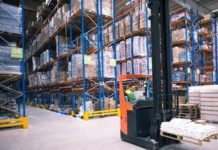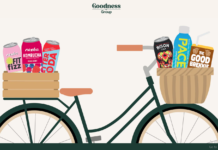Nestlé recently announced that it would invest up to CHF 2 billion (approximately Rs 15,000 crore) to lead the shift from virgin plastics to food-grade recycled plastics and to accelerate the development of innovative sustainable packaging solutions.
Building on its 2018 commitment to make 100% of its packaging recyclable or reusable by 2025, Nestlé will reduce its use of virgin plastics by one third in the same period while working with others to advance the circular economy and endeavor to clean up plastic waste from oceans, lakes, and rivers.
Food quality and safety are paramount, and packaging plays a major role in assuring this. Most plastics are difficult to recycle for food packaging, leading to a limited supply of food-grade recycled plastics. To create a market, Nestlé is therefore committed to sourcing up to 2 million metric tons of food-grade recycled plastics and allocating more than CHF 1.5 billion (approximately 11,000 crore) to pay a premium for these materials between now and 2025. Nestlé will seek operational efficiencies to keep this initiative earnings neutral.
According to Nestlé, packaging innovation, including new materials, refill systems, and recycling solutions is another key challenge on the path towards a waste-free future. In addition to its significant in-house research through the Nestlé Institute of Packaging Sciences, the company will launch a CHF 250 million (approximately Rs 2000 crore) sustainable packaging venture fund to invest in start-up companies that focus on these areas.
These two initiatives come in addition to Nestlé’s major ongoing efforts in research, sourcing, and manufacturing to make its packaging recyclable or reusable and contribute to its goal to achieve zero net greenhouse gas emissions by 2050. As part of the company’s packaging commitment and to increase transparency, Nestlé will continue to outline further initiatives and offer regular progress updates.
“No plastic should end up in landfill or as litter,” said Mark Schneider, chief executive officer of Nestlé. “Making recycled plastics safe for food is an enormous challenge for our industry. That is why in addition to minimizing plastics use and collecting waste, we want to close the loop and make more plastics infinitely recyclable. We are taking bold steps to create a wider market for food-grade recycled plastics and boost innovation in the packaging industry. We welcome others to join us on this journey.”
“We are pleased to see Nestlé commit a CHF 2 billion (approximately Rs 15,000 crore) investment toward creating a circular economy for plastics, alongside a reduction of its use of virgin plastic in packaging by one third by 2025. By eliminating the plastics, we don’t need, innovating in areas like reuse models and new materials, and circulating the plastics we do need — also in more challenging food-grade applications — we can create an economy where plastic never becomes waste. Achieving the commitments announced today will significantly contribute towards realizing this vision,” said Andrew Morlet, chief executive officer, Ellen MacArthur Foundation.
IndiFoodBev — authentic, impactful and influential
An English-language food and beverage processing and packaging industry B2B platform in print and web, IndiFoodBev is in its third year of publication. It is said that the Indian food and beverage industries represent approximately US$ 900 billion in revenues which implies more than 20% of the country’s GDP. Eliminating the wastage on the farmside can help to deliver more protein to a higher number of the population apart from generating sizable exports. The savings in soil, seeds, water, fertilizer, energy and ultimately food and nutrition could be the most immense contribution that country is poised to make to the moderation of climate change.
To improve your marketing and grow sales to the food and beverage processing and packaging industry, talk to us. Our research and consulting company IppStar [www.ippstar.org] can assess your potential and addressable markets in light of the competition. We can discuss marketing, communication, and sales strategies for market entry and growth.
Suppliers and service providers with a strategy and budget for targeted marketing can discuss using our hybrid print, web, video, and social media channels to create brand recognition linked to market relevance. Our technical writers are ready to meet you and your customers for content.
The second largest producer of fruit and vegetables in the world is continuously expanding processing capacities and delivery systems with appropriate innovative technologies. We cover product and consumer trends, nutrition, processing, research, equipment and packaging from farm to thali. Get our 2025 media kit and recalibrate your role in this dynamic market. Enhance your visibility and relevance to existing markets and turn potential customers into conversations. Ask for a sample copy of our bi-monthly in print or our weekly IndiFoodBev eZine each Wednesday.
For editorial info@ippgroup.in — for advertisement ads1@ippgroup.in and for subscriptions subscription@ippgroup.in
Naresh Khanna – 10 February 2025
Subscribe Now












